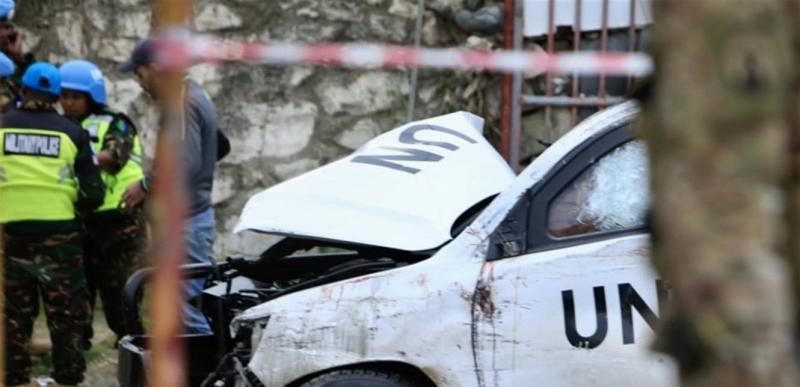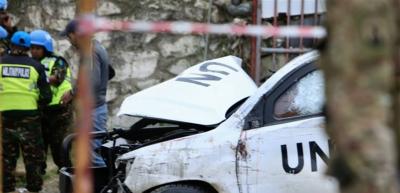The incident in the town of Aqbiya, which resulted in the death of a soldier and three injuries from the Irish battalion, along with two Lebanese citizens, has intensified the external political pressures on Lebanon. This has led to a renewed discussion about the proliferation of weapons and the need for the state to reclaim its presence on the ground, which has been suffering from lawlessness and chaos due to the absence of official institutions addressing citizens' crises at all levels, crises that are worsening day by day.
These pressures are natural in the current complex political situation, where a fierce battle has been ongoing for years between two major regional and international axes, with their conflict reflecting in Lebanon over all political and non-political issues. This includes the stalled election of a president due to the lack of external and internal consensus, as well as disputes regarding the caretaker government's exercise of presidential powers, resulting in a "semi-paralysis" of the government that could escalate into a complete paralysis if disagreements on this matter continue.
Lebanon is unlikely to easily emerge from its crises, which are proliferating like poisonous mushrooms, as long as external pressures persist on every subject and issue. According to some Lebanese political forces, such as Walid Jumblatt and others, these pressures have become "ineffective," as they have failed to exert any real impact on the targeted forces to change their performance, orientations, and policies. Instead, they have had a negative counterproductive effect on the general public rather than on the targeted political and sectarian segment. Neither the dollar pressure, the electricity blockade, nor the harsh Western rhetoric toward politicians has led to the necessary structural reforms and a change in performance. Additionally, external sanctions on certain entities and individuals have not weakened the targeted parties, but rather increased their supporters' loyalty.
Thus, there has been a call for the necessity of finding different approaches to alleviate external pressures on the economic and living situation. However, political pressures aimed at achieving economic, financial, and administrative reforms remain. Meanwhile, it appears that the alliance of some power and political forces with monopolistic economic entities is stronger than all external pressures. This alliance only implements what meets its major interests, showing no response to the required and rightful reforms, nor ensuring the implementation of some laws that have been passed. The worsening collapse has been exacerbated by the judiciary's "disengagement" and its disputes, which have hindered justice.
The "Change Forces" have failed to bring about any change or even influence within this system, nor to mitigate the external pressures and their negative impacts on the overall Lebanese situation. It is true that electing a president and forming a new government with a new homogeneous team, more cohesive than the current one, is considered the primary gateway to finding a solution. However, it is also true that conflicting external and internal interests hinder consensus on electing a head of state, as this critical issue becomes ensnared in disagreements, divisions, and both large and small interests. A part of the presidential vacancy crisis is borne by domestic factors, while another part stems from external impositions of conditions, standards, and specifications that are not feasible in a single individual. Even if most conditions were met, they cannot be successfully achieved due to the structure and nature of the Lebanese political system.
Perhaps France is the only country that realistically engages with the Lebanese situation, recognizing that external pressures will not resolve internal disputes, nor will they facilitate the election of a president or the easy formation of a government, even if an agreed-upon president is chosen. Moreover, these pressures will not lead to reforms or address the suffocating living crisis that has transformed into a socially tense situation plagued by daily security tensions, with rampant gangs growing dangerously despite significant security efforts to confront them. But what can be done when confronted with insurmountable odds? Genuine, conditional, and monitored external support from foreign nations is needed due to the rampant corruption, rather than piecemeal assistance limited to certain sectors and institutions that merely alleviates Lebanon's living and economic crises to reduce prevailing tensions.




